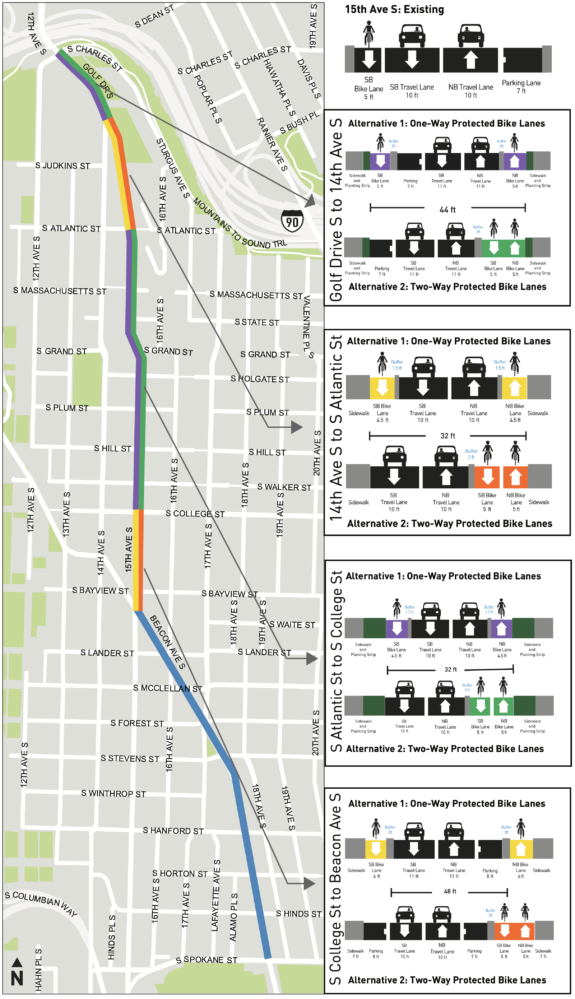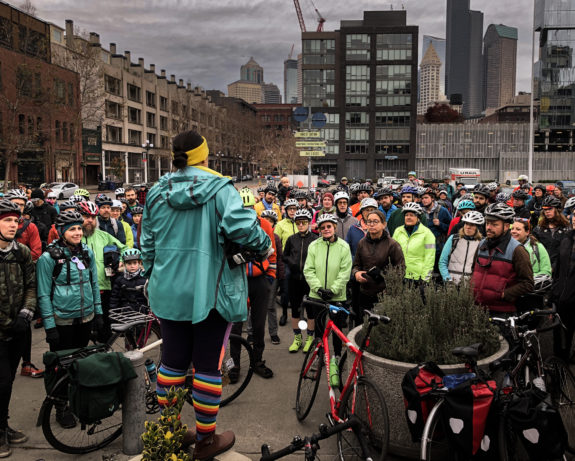Seattle’s City Council needs to be very careful with its proposed new taxes on scooter and bike share services, which Councilmember Andrew Lewis has proposed as part of the 2023-24 budget. It is expected to cost $540,000 in 2023 to set up a taxing system to charge 25¢ per ride in hopes of collecting $716,000 per year, though the new collection process won’t be ready until 2024. The new tax would be in addition to the annual street use permit fees companies already pay, which is currently $150 per scooter or bike.
However, collecting those fees assumes that these companies continue operating at current levels, and that is not at all guaranteed in the volatile business of micromobility. Bird, for example, is in dire straits financially with their stock trading at 40¢ per share as of closing yesterday, down from their initial public offering price of $8.40 one year ago. Take two Bird rides and the city’s proposed tax could buy a whole share of their stock plus a stick of gum. Lime is no longer part of Uber, though that company does have a stake in its ownership. Seattle also lost Spin scooters earlier this year when that company decided to pull out of cities that do not limit the number of companies enough to make operations sufficiently profitable. While Bird surely has financial issues not shared by all micromobility companies, the industry can’t really be considered stable. These companies are still fighting to prove their viability as businesses.
Beyond the budget implications, scooter and bike share services are helping people move around the city under human and electric power, and that’s a good thing. If companies get into a spot where they need to scale back operations, cities with the highest costs to operate could very well be on the chopping block. While Seattle seemingly has a healthy number of rides, thanks in large part to the city’s quality bike facility network relative to other U.S. cities, it’s not clear how profitable it is to run the services here. Prices have risen significantly in recent years as companies try to find the price point that maximizes profit. It’s not clear whether adding 25¢ of tax to each ride would be swallowed by the companies or passed onto riders, but it feels to me like Seattle has more to lose than we have to gain.
Cutting a potential revenue source from the budget might be a tough ask, though. Seattle’s updated revenue forecast this week dumped a bucket of cold water on the city’s 2023-24 budget dreams. The biggest reduction is an anticipated $64 million decrease in real estate excise taxes, though the general fund is also expected to decrease $9.4 million and the sweetened beverage tax should decrease $4.5 million.
However, it will cost the city’s general fund $540,000 in 2023 to set up this tax, which the city can’t even begin collecting until such a system is established in 2024, so it is not an immediate help to the budget. The budget proposal document acknowledges this issue, saying that though the tax would be effective January 1, 2023, collection might not begin until 2024. “This lag would not change the total amount of tax due, but may have cash flow implications for when tax revenues are available to be spent,” the budget proposal document notes (page 56-57 in this PDF). “Because initial tax collections may lag until 2024, this Council Budget Action does not anticipate spending of tax revenue in 2023.”
In defense of this budget action, the funds would be limited to bike lanes, traffic calming and Vision Zero work. These investments help scooter and bike share companies get more rides, so they are relevant and worthy expenses. I also don’t fully understand the benefit of establishing a new per-ride taxing system when we already have a per-device fee system in place. Street use fees can and often are used to build bike lanes and other street safety improvements just like the proposed tax would. While I am not necessarily advocating for increasing the street use fees for many of the same reasons noted above, that seems a lot easier and cheaper than setting up a whole new tax.
UPDATE: I meant to add this list of better revenue options from Seattle Neighborhood Greenways:
We recommended looking into seven other better options instead:
- DC’s surcharge on excessively heavy vehicles
- Portland’s Parking Climate and Equitable Mobility Transaction Fee
- A tax on employers that subsidize parking or businesses that validate parking
- LA’s smog fee
- A tax on Uber/Lyft surge pricing rates
- A low emissions zone fee
- Finland’s income adjusted ticketing system









